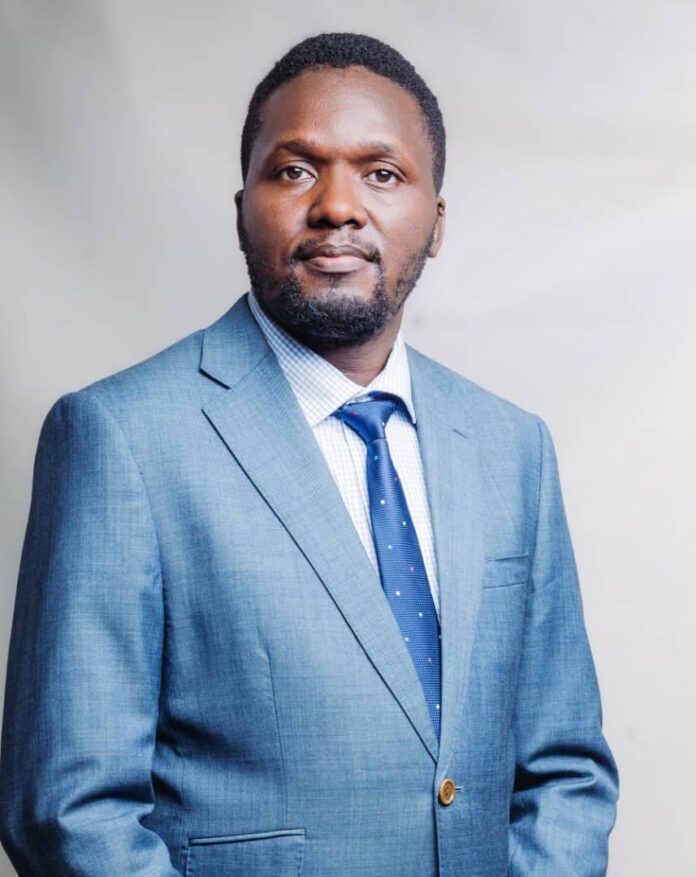By Jumbwike Sam
In his 1992 Journal Article, Constructivist Alexander Wendt postulates that anarchy is what states make if it, that is to say, the way states conduct themselves towards each other is dependent on the signification they construct about them. Wendt argues that states can be friends instead of enemies, that anarchy does not exist until states interact with each other and that changes in identity and interests can reconstruct the international political system.
While on a 3-day working state visit to Egypt, the Ugandan President, Yoweri Museveni offered a detailed chronology of the history of the interaction between Uganda and Egypt to the delegations at the expanded session. He narrated how Uganda and Egypt have been historically linked by the Nile since time immemorial and how Ugandans always referred to Egypt as the land of many gardens (Misiri).
He dispelled the categorization of Uganda as landlocked country because it has a water link to the Mediterranean which was previously used by voyagers from Alexandria to Uganda. He reminisced about the historical importance of Egypt in Africa’s liberation from colonialism under the Pan African Leader Abdel Nasser who facilitated freedom fighters like John Kale from Uganda’s first Political Party, the African National Congress, to set up a coordination base in Cairo during the anti-colonial struggle.
He also highlighted his cordial engagements with past Egyptian leaders like Hosni Mubarak and Boutross Boutross Ghali. He expressed disappointment over the low volume of trade between Uganda and Egypt that stood at only USD$ 133 million which was not reflective of the historical attachment of the two countries.
The Hydro Politics of the Nile Basin from a Constructivist’s View
To a lay man, River Nile in nothing beyond an ordinary stream of water with that flows throw different countries before pouring into the Mediterranean. Long before the formation of the modern states in Africa, each community along the Nile enjoyed un interrupted usage to the river without any external control.
The competition for trade along the Mediterranean instigated interest in establishing the source of the Nile as it was presumed that whoever controlled the Nile would have an edge on controlling the trade along the Mediterranean. Thus started the global path of attaching political meaning to the Nile where control over it became the ultimate symbol of dominance.
The 1929 and 1959 Nile Water Agreements between Egypt and colonial Britain recognized Egypt’s rights over the Nile and gave it hegemonic status before the upstream Nile countries gained independence. These agreements imposed obligations on upstream countries and nothing on Egypt. Uptodate, the Nile is a symbol of life and death, and Egypt keeps threatening the upstream countries against tampering with the flow of Nile with war. All activities by upstream countries on the Nile are perceived as a threat to Egypt’s survival.
Museveni outmaneuvers attempts to make him a Quisling for Egypt’s Hegemonic interests
President Museveni’s long stay in power has enabled him to fraternize with different Egyptian leaders like Hosni Mubarak, Mohammed Morsi and the former UN General Secretary Ghali Boutross. For all the years that he has stayed in power, General Museveni’s position about the Nile has been that its problems are beyond agreements and documents in Egypt’s possession.
In his view, the underdevelopment and backwardness in the upstream Nile countries are the biggest risk to the Nile because people are ignorant and end up misusing land and water bodies by invading wetlands which are tributaries to the Nile and his remedy to the Nile problem is through social economic transformation such that there is a shift from dependence on agriculture to industry thus reducing encroachment on catchment areas.
Recently, the current Egyptian President Field Marshal Abdel Fattah El-Sisi invited Uganda’s General Yoweri Museveni with the hook of providing financing to support southern Nile Basin Countries.
Armed with a framework for the formation of a joint Egypt-Uganda Business Council to boost investment in construction, energy and pharmaceuticals, President Sisi held bilateral discussions with his experienced counterpart. President Museveni let the cat out of the bag on proceedings in their closed meeting where he strongly objected to Egypt’s insistence on the entrenchment of its historical rights over the Nile.
President Museveni revealed that his position in the meeting was one of prioritizing the needs of all the upstream Nile countries like prosperity for all, electricity for all, irrigation for all and access to water for consumption for all.
Why It Is Now or Never for Upstream Nile States
According to General Museveni, the problem between Egypt and the upstream Nile states is not as big as it looks, but it is Egypt’s insistence on colonial rights that is complicating the relationship. In his brotherly appeal to President El Sisi, General Museveni requested Egypt to consent to the Cooperative Framework Agreement which guarantees equitable distribution and utilization of the Nile Water Resources that has already been ratified by the upstream countries of Uganda, Rwanda, Ethiopia and Tanzania.
It is not a guarantee that the upstream Nile basin will have a statesman of Museveni’s caliber with consistency over the Nile basin vision in the next 40 years as the case has been, neither is it certain that Egypt will have leadership with cordial relations to Uganda like HE El-Sisi. Now is the perfect timing to realign the Nile basin relationship with Egypt from Enemy to friend with recognizable interest from both ends.



